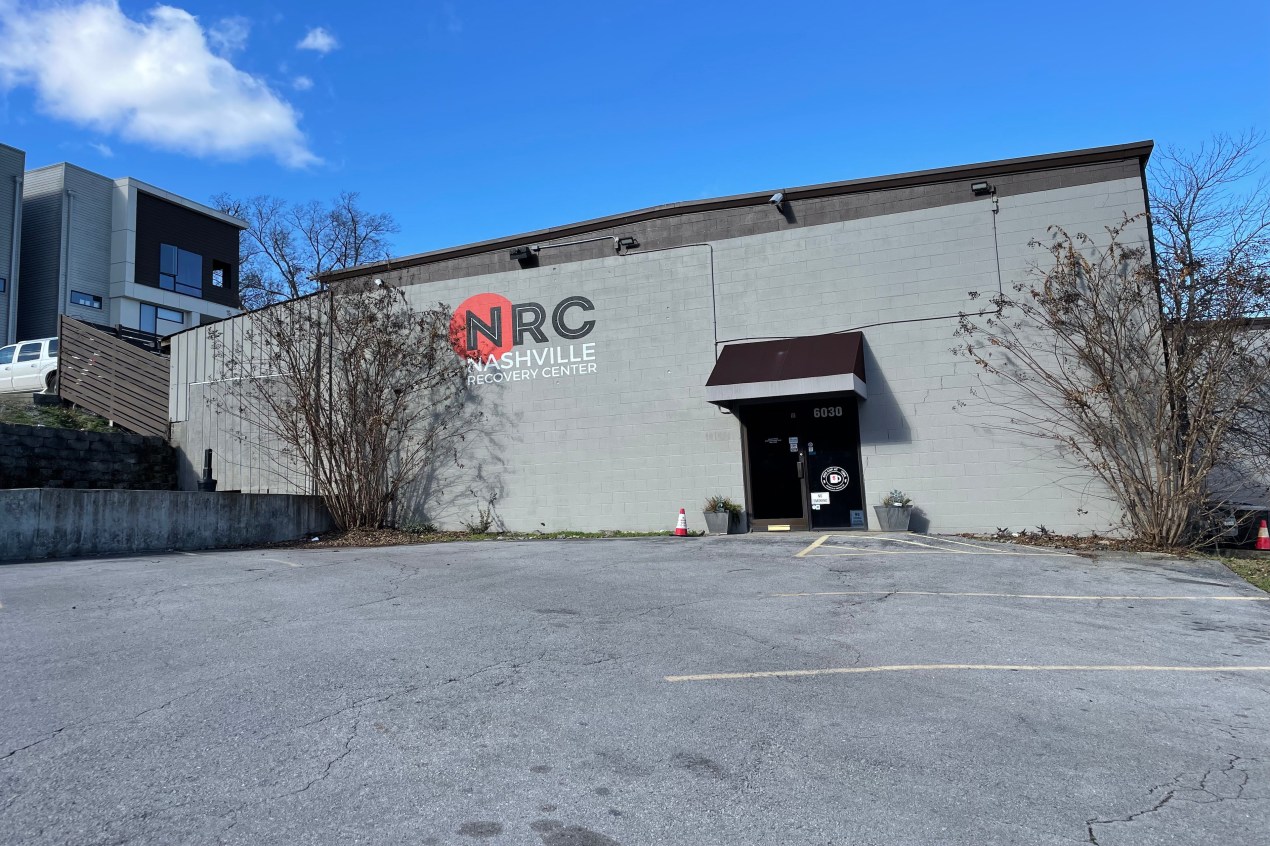Expert Support: Navigating Options for an Addiction Treatment Center
Expert Support: Navigating Options for an Addiction Treatment Center
Blog Article
Navigating the Journey of Detoxing in the Comprehensive Dependency Treatment Program
Getting started on the course of detoxing within the structure of a thorough dependency therapy program is a pivotal phase in the journey towards recovery. The process of detoxification holds a significant function in breaking the physical dependancy on materials and preparing the individual for the subsequent phases of therapy. Browsing via detoxing is not just a matter of physical cleansing; it involves an intricate interaction of emotional, psychological, and social variables that require cautious factor to consider and support. As people face the challenges of withdrawal signs and the unpredictabilities that lie ahead, having a durable support and an organized plan system in location comes to be extremely important. In this conversation, we will certainly discover the multifaceted aspects of cleansing within the comprehensive dependency treatment program and clarified the vital parts that form this transformative trip in the direction of recovery.
Value of Detoxing in Healing

Cleansing establishes the foundation for the remainder of the dependency treatment program by preparing the individual for more treatment and therapy. By cleansing the body important that have actually been clouding judgment and influencing habits, detoxification enables individuals to approach their recuperation with a more clear mind and more powerful emphasis.
Moreover, detoxing aids in taking care of the possibly extreme withdrawal signs that may develop when medication or alcohol usage is quit. Doctor closely keep an eye on individuals during detox to guarantee their safety and security and supply necessary assistance. With this process, people can start their journey towards soberness with a supported mental and physical state, boosting the likelihood of an effective recuperation.
Comprehending the Detox Refine
Cleansing, a fundamental part of dependency therapy programs, entails a structured process intended at safely removing harmful materials from the body to assist in a successful recovery trip. The detox procedure usually begins with an assessment to assess the person's material use background, physical health, and mental well-being. This analysis aids health care professionals figure out the most suitable detoxification strategy customized to the individual's demands.
During detox, the body experiences withdrawal as it changes to the absence of the compound. Withdrawal signs and symptoms differ relying on the kind of compound made use of, the period of usage, and individual variables. Medical supervision throughout detox is essential to take care of withdrawal symptoms and make sure the individual's safety and convenience.

Managing Withdrawal Symptoms

Medicines might be used to ease specific withdrawal signs and lower discomfort. Drugs like methadone or buprenorphine can help take care of opioid withdrawal symptoms, while benzodiazepines may be made use of for alcohol withdrawal. It is important for doctor to meticulously monitor the person's action to these medications to guarantee their safety and effectiveness.
Along with pharmacological interventions, helpful treatments such as therapy, peer support system, and alternative methods like mindfulness reflection or yoga exercise can aid people manage the emotional and psychological challenges of withdrawal. By attending to withdrawal signs adequately, healthcare carriers can enhance the detoxification experience and support individuals on their journey to recovery.

Support Solutions Throughout Detoxification
Support systems play an important duty in providing emotional and social support to people undertaking detoxing in addiction treatment programs. image source During the detox process, individuals frequently experience a variety of physical and mental withdrawal signs and symptoms, making this stage tough - Addiction Treatment Center. Having a solid assistance system in area can significantly impact the individual's ability to browse via detox successfully
Household participants, friends, support teams, and healthcare professionals are important components of the support system. Family members and pals can use support, understanding, and a feeling of belonging during this difficult time. Assistance groups offer a platform for individuals to connect with others who are experiencing similar experiences, providing a sense of neighborhood and shared understanding. Health care professionals, including therapists, medical professionals, and therapists, play a crucial duty in keeping an eye on the individual's progression, providing medical assistance, and offering advice throughout the detox procedure.
Looking Ahead: Life After Detox
Having effectively completed the cleansing stage, people in dependency therapy programs currently concentrate on preparing for the difficulties and opportunities that exist in advance in their trip in the direction of recuperation. Life after detoxification notes a crucial transition period where individuals should remain to improve the development made during detox to maintain their sobriety. It is important for individuals to recognize that the journey towards recovery is ongoing and requires dedication, dedication, and a readiness to accept change.
One key aspect of life after check this detox is the growth of dealing systems to take care of triggers and food cravings that may occur. This may entail finding out new skills, such as mindfulness practices, cognitive-behavioral strategies, and stress and anxiety monitoring methods, to navigate challenging situations without considering compound usage. Furthermore, individuals are encouraged to proactively participate in ongoing treatment, support teams, and aftercare programs to reinforce their support network and receive advice as they navigate the complexities of life post-detox.
Verdict
Understanding the detox procedure and managing withdrawal signs are important actions towards healing. It is vital to acknowledge the value of detox in the procedure of overcoming addiction and relocating in the direction of a life of sobriety.
Medical guidance during detox is critical to manage withdrawal signs and symptoms and guarantee the person's security and comfort.
By comprehending the detox process and its value in damaging the cycle of dependency, individuals can embark on a path in the direction of lasting recovery.
During the detoxification process, people frequently experience a variety of emotional and physical withdrawal symptoms, making this phase challenging. Health care experts, consisting of doctors, therapists, and therapists, play a vital function in checking the person's progression, giving clinical assistance, and providing assistance throughout the detox process.
Life after detox notes a critical change duration where individuals must proceed to develop on the progress made throughout detoxification to keep their soberness.
Report this page